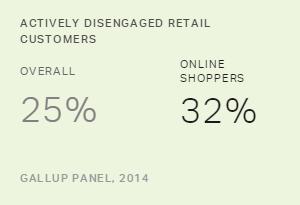Story Highlights
- The brand promise won't matter if employees don't deliver on it
- Few employees are capable of advocating for the company brand
- A strong brand promise has four key elements
The Super Bowl has long been the grand stage of advertising, a one-of-a-kind television event that draws upwards of 100 million viewers, some just for the commercials alone. This year, NBC is selling 30-second spots for approximately $4.5 million.
But the companies that pay big bucks to advertise during the big game tend to overlook the real make-or-break factor behind their brand's success: their employees. These businesses spend millions to create 30 seconds of television that perfectly encapsulate their brand promise, but they forget to check in with the people who are actually responsible for delivering on that promise.
When companies fail to help their employees understand and act on their brand promise, they also fail their customers. Advertising campaigns may initially work to get people through the door, but they don't keep customers coming back -- and they certainly don't make them lifelong brand advocates. Those relationships are built on the employee-customer encounter. Every time your customers interact with an employee, they either become a little more or a little less .
Ready to Be Brand Ambassadors?
║┌┴¤═° analysis finds that only a fraction of employees are equipped to be effective brand ambassadors. The research shows that:
- 42% of employees overall strongly agree that they know what their organization stands for and what makes it different from its competition.
- 33% of employees overall strongly agree that they encourage family members and friends to purchase or use their organization's products and services.
- 27% of employees overall strongly agree that they work for an organization that always delivers on the promise it makes to customers.
║┌┴¤═° also finds that employees in some industries -- such as finance, insurance and real estate -- understand their company's brand and are delivering on it better than employees in other sectors, particularly the computer industry and manufacturing or construction. Still, no single industry has managed to turn even half of its employees into brand ambassadors.

All companies are capable of fulfilling their brand promise through their people. To do so, they must start with a strong brand promise that has clarity, consistency, alignment and commitment.
- Clarity: A company should clearly define its brand promise to ensure that it acts as a competitive differentiator. Employees should know and understand the brand promise and feel empowered to deliver on it. Leaders and managers must help employees understand what the brand promise is and what it stands for. Employees also must understand what the brand does not stand for and what the company does not want it to become.
- Consistency: Brands spend a lot of time and money attracting new customers through discounts and promotions. But those perks often disappear once the introductory period is over. Companies must be consistent in how they treat customers during every interaction. They cannot draw customers in with one promise and then flip the script later.
- Alignment: Brands often treat their service channels like silos, making it difficult for them to give customers an aligned experience. For example, customers who buy online and then return their purchase to a brick-and-mortar store might feel as though they've interacted with two completely separate companies. Leaders and managers must ensure that all employees, whether they work on the sales floor, in the call center or behind a computer, receive the same messages about the brand, what it stands for and how to talk about it with customers. Employees also must receive the same messages about deals, promotions, events and processes to ensure that everyone delivers on the brand in the same way.
- Commitment: Ad campaigns can and do change, but the core of a brand promise should never waiver. Companies must be committed to carrying out their promise, especially when times are tough or as circumstances change. Employees feel better about working for a brand that sticks to its principles, and customers feel better about giving their money to that brand.
Your company's brand promise lives and dies with your employees. If they don't believe in the products they are creating, selling and fixing, there is no reason to think that your customers will.
Super Bowl commercials may have a "wow" factor, but they don't engage employees or make them better brand ambassadors. For that to happen, companies must have real conversations with their employees about the brand and help them connect their work to it.
Sure, Super Bowl ads receive plenty of attention, but that hype fades -- quickly -- and then companies are only left with their ability to deliver on their brand promise. And if they can't do that, they've thrown their millions away.

